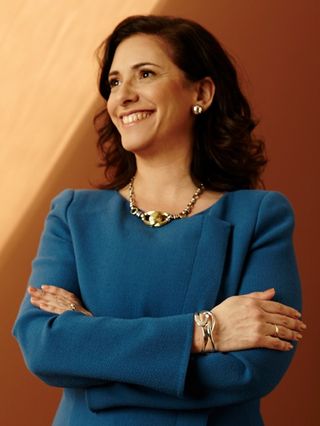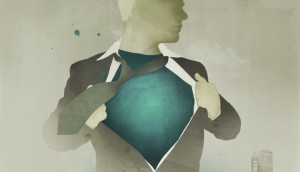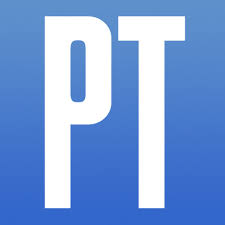Kathy Cramer Ph.D. Kathy Cramer Ph.D.
After only five minutes into the interview, it was clear to me that Erica Ariel Fox was doing transformative work to change the way leaders lead. After the interview, she told me that using the Hero’s Leadership Journey framework to tell the story of her career was a transformative experience for her. It helped her to see new patterns and experience her journey as an actually lived story. From this new perspective, she saw that she had been more competent at dealing with each phase of her career than she had thought she was. This is the power of the Heroic Leadership Journey framework. As you read Erica Ariel Fox’s story, think about how you too can use this valuable framework to develop a new appreciation for the work you have put in to get where you are.
Erica Ariel Fox, the “premier mythologist of modern business leadership,” developed the Winning From Within™ Method, which teaches people to negotiate effectively with themselves in order to deal successfully with other people. Her first book, based on her methodology, is a New York Times best seller. Erica is Co-Founder and President of Mobius Executive Leadership, where she works with Fortune 500 companies to help senior executives develop their leadership capabilities.
This is part one of Erica Ariel Fox’s heroic leadership journey. Tune in next week for part two!
You’ve gone to school at some of our greatest institutions and you have a very strong presence in the marketplace. What would you say has been your mighty cause? What is it that has gotten you to where you are?
What a lovely question. I’ve chosen to stand on a bridge—or create a bridge and stand on it—between very senior business leaders and the universe of self-discovery and self-transformation. This universe has many streams including philosophy, neuroscience, psychology, a range of wisdom traditions, many different contemplative practices, because there’s an enormous need in the business world for people to figure out what makes them tick, how to understand themselves on the inside.
There’s an incredible wealth of wisdom in the personal development world but those two worlds [business and personal development] really don’t meet.
Most senior leaders don’t go to retreats. They don’t see a therapist unless their marriage is in trouble. They don’t read self-help books. They don’t know how to access a lot of that wisdom. And I have had one foot in each of those worlds for most of my life. So I feel called to tap into that body of wisdom and serve as a translator.
Even if I gave some of my favorite [personal development] books to my clients they wouldn’t understand them because the books aren’t written in a language that resonates with their life experience. So I see myself as translating in a lot of ways so that people who are making enormously important decisions that impact the lives of millions of people can do so from a place of self-understanding and centeredness and become more grounded in their leadership. That’s my sense of purpose.
And the impact that I see myself having is quite moving, actually. I see very senior leaders coming from some of the most traditional institutions in the world taking enormous risks to open up, to be vulnerable with each other, to experiment with different learning modalities in the hopes of polishing the stone of their own hearts, of their own deeper wisdom. And then when they do it they are so joyful and so liberated and so much more powerful as leaders. Watching those results happen over and over fuels me to keep going.
These highly successful people who run large companies that affect the lives of millions of people, how do you reach them? What is it that they seem to be looking for? Or what are they responding to when they hear it from you?
These are professionals who are far along in their career—they’re not high potentials, they are CEOs leading large initiatives. They’ve been around the block. They’ve done the conventional leadership programs. They’ve gone to executive education workshops at fancy universities for a week. They’ve done all of that and nonetheless because of the pace of change today, because of the level of disruption, these people are telling me: “I used to wonder if my job would still be here in five years and now I wonder if my industry will be here in five years…”
So there’s a high level of uncertainty and fear and the sense of “I’m just in over my head. I can barely cope with what I’m trying to do and there’s this cloud hovering over me all of the time knowing I can predict nothing. I can control nothing. Even though I learned command and control what I see now is that actually I control nothing. And I don’t know—I’m spinning.”
This is the kind of thing they say in private corners: “I don’t know what the hell is going on and I don’t feel confident anymore in what I had learned before that worked before. It doesn’t work now and it’s certainly not going to work in the future because of the massive disruption in the world.” They’re asking: “Who out there has something to give me that would enable me to cope and eventually thrive and lead in the new world which we’re in already?”
How do you speak about your value proposition so that they will want to give it a chance?
In a world that is re-inventing itself, you can’t stand still. You need to re-invent yourself, too. Otherwise you’ll get left behind. If you invest in your capability as a leader, dig deep and find resources for flexibility, adaptability, and balance that you’ll need to succeed in the new world.
And the key is that the fundamental resource that you can count on, that you’re going to have to draw on, lives inside of you. It’s your capacity, your inner wisdom, your inner source for making wise decisions in a very uncertain, constantly changing, ambiguous environment.
Whatever you’ve learned until now is not going to be enough for you to lead in that environment. So what you can do is come spend a week with us, and using “winning from within” methodology, develop your capacities to deal with complexity, to deal with uncertainties, to deal with constant change. We can teach people how to find the resources within themselves that can help them thrive in a changing world.
I’ve heard you say people can go through life on autopilot, but these people know that they can’t because they’re hitting walls. They’re asking, “If I want to be really purposeful and conscious and not on autopilot, what would that look like?” And we say, “Great, come spend a week with us and when you leave you will understand how to lead with your eyes open, not on autopilot.”
So do you have a set of provocations? How would you describe at a high level the full-immersion week? Is it a kind of a simulation that people enter?
It’s very much of a path, actually, based on Joseph Campbell’s “Hero’s Journey.” There’s a period of arriving at the beginning. They need to leave the “ordinary world.” We tell them, “Today and tomorrow we’re just ‘arriving’ because you have to switch gears from your day-to-day mind of answering emails, doing tasks, being in touch with people.” We give them a day or so to really let that go quiet.
We have other tools for helping people to “cross the threshold,” like not allowing phone calls or emailing while they’re at the program. We’re in touch with all of their assistants and they can be reached in an emergency. But we say to them, “Think about the thousands of people who depend on you. What do you owe them more than committing to be the best possible leader you can be? You’re investing in being the best possible CEO. And so for a few days you’re not answering their emails. Isn’t that worth it?”
There’s also no alcohol, which departs from their “ordinary world” experience of meeting at the bar to hang out in the evenings. There are no phones. There’s no distraction, no numbing yourself out. There’s just being with yourself. And by the end people don’t want to turn their phones back on.
In the core of the experience is what Campbell called “initiation” or “transformation.” So that period in the middle can feel messy. We hold up a mirror to people so they can see their own patterns of behavior, emotion, and thought that have been with them for decades. Our job is to help them see those things, name them, see how they get in their own way. That can be painful and, of course, stormy, because we’re engaging with people’s shadow material.
We use Jungian archetypes to support the clients to re-write their personal myths, to discover an expanded story of who they are and who they can become. At this point they move into the exhilaration of working through those things and practicing new ways of seeing, new ways of behaving. What if you thought about it totally differently? Again—one of your sweet spots, Kathy—what if you had a totally different view for thinking and seeing and noticing and naming and you understood you could relate to people in a completely different way? What if you could access all the different parts of you, and you related to them in ways that support, rather than thwart, your vision for your life?
By the time they’re ready to cross the threshold back to the ordinary world, they are visibly changed, more free, more compassionate, more centered. And without a doubt they have gained rewards to bring back with them.
I think what is different about what we’re doing is that a lot of leadership courses operate on a level of knowledge and skills: “We’re going to give you some models and frameworks and practice behavior and maybe give a nod to self-awareness,” they say. But they never define “the self,” and they never explain what they mean by “awareness.”
Our methodology starts with giving people a map of the self with seven points. We use archetypes so people can drop easily into the universal energy of these parts of who they are. Four points on the map are parts of the self that operate in the world – the Dreamer, Lover, Thinker, and Warrior – and three more parts that operate in yourself – the Lookout, Captain, and Voyager.
In the program we help people to really feel all of those parts, to experience it all first-hand, inside themselves. That’s how they really come alive. That’s how they’re going to thrive in a VUCA (volatility, uncertainty, complexity and ambiguity) world, by actually experiencing everything that’s already going on inside them anyway. In some of the courses we distinguish the small “s” of the smaller self from the big “S” of the larger “Self.” We follow each group and go where they want to go.
Then at the end we resurface, and prepare people for “The Return.” They’re going back to work. They’re going back to their families who haven’t been in this immersion. So there is a part at the end of getting ready to return to the ordinary world. It’s a deep immersion that provides a whole new way of seeing themselves and the world around them. Many people find the experience life-changing. They do need some guidance on how to re-enter their day-to-day lives.
When you first started this work did you have any self-doubt? Were there any people saying to you, “Are you crazy? This doesn’t sound like it’s going to fly.”
I felt so clearly called to it that although there were naysayers I just didn’t listen to them. And there’s an upside and a downside to that.
My background is in conflict resolution and that was my focus. That’s what I teach at Harvard Law School. And between 2000 and 2001 both of my parents passed away. And then September 11, 2001 happened. So I felt from a personal perspective, and also vocationally, an enormous wakeup call. There was my own mortality but also the feeling of what are we missing? If people are just flying planes into buildings killing thousands of people, we’re missing something in conflict resolution. Something big.
I took a year off after my father passed away. I was 31 years old, an early time to say I’m going to step out and think about what my unique purpose is, what’s my contribution, what’s my call. And that’s when I began to sense this opportunity to create this bridge between these worlds.
Against extreme odds I created a center at Harvard looking at this intersection of mindfulness, wisdom traditions, and philosophy with contemporary leadership, negotiation, and conflict theory. In time we brought in neuroscience, too. I think it came together partially because my mentor at the law school felt bad for me, thinking “Poor Erica, she’s been through so much and if she wants to do this, great.” I think he was being kind, hoping this was a little hobby that would make me happy. He probably thought it wouldn’t go anywhere, since this was early days when even “mindfulness” sounded way out there to a lot of people.
With his blessing and support from other faculty, we launched the Harvard Negotiation Insight Initiative (HNII), which I then led and grew over five years. The program gained international attention, developed compelling new theories, and established a global community of professional seekers. I had found my place.
However, that project didn’t end well. And I think I should have been able to anticipate that doing something so unconventional at such a traditional place would have required more nuance—my situation was more delicate than I noticed. I was just riding high. I had a passion and a vision and I wasn’t paying attention to the optics.
We taught meditation, so I was having lawyers and judges and executives sitting on the floor at Harvard Law School. Actually, I didn’t have people sitting on the floor, I had them sitting on very expensive meditation cushions, and those are not the same thing. But to the eyes of a person who is used to a more traditional world, it’s kind of shocking to think one of their faculty is having people come and then sit on the floor. So I should have had more caution but I was really a little blinded by my dream to be honest.
Well, in this part of your story you are really talking about three phases of the heroic journey all at once. You’re talking about the Resistance that you didn’t have and about the Call that so inspired you, not in a way of hubris or any self-aggrandizement, but true passion. You’re also talking about how you Crossed the Threshold so that you could realize that dream.
Well, to be fair, Kathy, I think it was largely passion along with a significant dose of self-aggrandizement.
I do feel when I look back that I was going to be the person who is going to do this. Not because I wanted people to think I was great. It wasn’t like I wanted people to know Erica did this. It wasn’t the Fox Center for Conflict Resolution. But I do think I have much more humility now.
I have much more humility now that I’m aiming to help. I’m aiming to serve. I’m one of many teachers in the world who are trying to bring about this evolution with senior leaders. I’m not the only person. I’m probably not the best person.
I’m one of many people doing something that I do think is quite important and I do think I’m good at it and I’m very able to help people. But at that time I think I felt like I am THE person to do this and that wasn’t entirely healthy.
I would call it the same thing many of your CEOs probably bring with them: dogged determination and self-reliance. The thinking that: If not me, who? If not now, when? And that actually does propel many very important innovations, disruptions. I think you are a disruptive positive force.
And so, yes, early on being able to muster the courage, the energy, the foresight, it can have that shadow or negative edge. But it looks like you Crossed the Threshold, right? You overcame some kind of Resistance. You just put it in time out and you Crossed the Threshold.
It actually didn’t take courage. People would say to me all of the time, “Wow, you’re so courageous. I mean you’re so out there. What you’re doing is so unconventional.” But at the time it was the fuel of feeling truly called. It didn’t feel scary. It didn’t feel brave. It felt like, I have identified that this is the reason I came to this earth. This is my life purpose, my unique contribution. I’m the person—I was born to do this and I’m going to do it and it wasn’t scary.
I didn’t feel courageous. I just felt like clearly this is my life path and purpose so let’s do it. And it was a joy. It was absolutely a joy and I didn’t feel scared. I wish I had felt a little more scared but I really didn’t. I felt like I’m called to do this and I’m doing it. And I agree with you I think a lot of leaders feel like that.
***************
Dr. Kathy Cramer has written seven best-selling books including Change The Way You See Everything, which started the ABT Global Movement. Her latest book, Lead Positive, shows leaders how to increase their effectiveness through her revolutionary yet refreshing simple mindset management process, Asset-Based Thinking. Download her Speaker Kit here.


